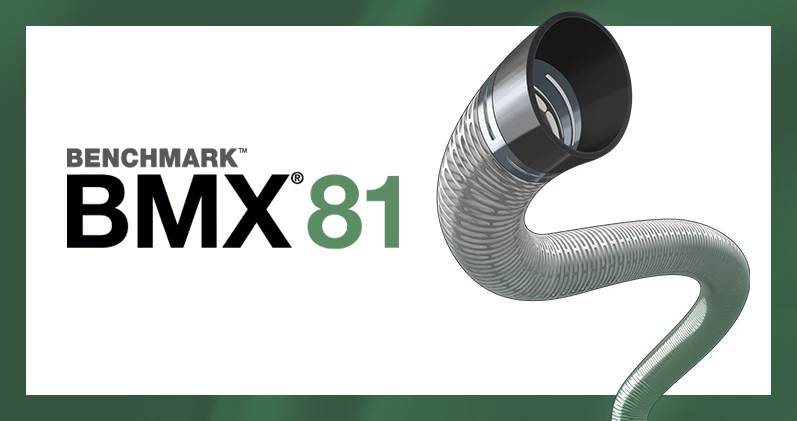Recent Data Show Positive Outcomes of Penumbra’s BENCHMARK™ BMX®81 System for Radial Access during Neurovascular Interventions

Recent data support the use of Penumbra’s BENCHMARK BMX81 Access System for radial access in neurovascular interventions, including expanding snuffbox access for carotid artery stenting to a wider patient population and successful navigation to target locations. The data were presented during the Society of NeuroInterventional Surgery (SNIS) Annual Meeting.
- Expanding radial access to more patients with reduced rates of radial artery occlusion: Researchers from John Muir Health and East Bay Brain and Spine looked at cervical carotid stenting via transradial access. The abstract, Snuffbox access for carotid artery stenting using the BMX-81 guide catheter: technical and anatomic considerations1, reported that the “…7 French BMX-81 guide catheter provides a balance between flexibility and rigidity that has advanced the ease and capability of radial access procedures best appreciated with carotid stenting.” The paper concluded that the BMX81 catheter can provide snuffbox access to a wider population and reduce rates of radial artery occlusion. Also, it noted that BMX81 helped overcome technical challenges, such as acute carotid origin angles and lower carotid bifurcations with shorter common carotid artery lengths, associated with carotid stenting.
- Offering ease of use and versatility for wide variety of procedures: Data presented by researchers from Vancouver General Hospital and Dalhousie University suggest that BMX81 is safer with improved maneuverability and support for a wide range of procedures. The abstract, Practical uses of the BENCHMARK BMX81 in the road less travelled: radial access for neurovascular intervention2, highlighted early multicenter institutional experience with the guiding catheter. The paper reported that the BMX®81 was successful in the navigation of the anatomy to the target location in 95% of cases in the series and no radial access or BMX®81 related complications were identified. Additionally, the authors commented in the accompanying manuscript3 that “… the one-piece design of the BMX®81 laser-cut stainless steel hypotube offers an advantage over traditional guide catheters by providing superior column strength and support. Distally, the design provides a construct with kink resistance, deliverability, and support.”
BMX81 is designed for a variety of procedures, including the most complex neurovascular interventions. The recent data continues to show that the advanced stainless steel hypotube technology of BMX81 provides distal deliverability and proximal stability for most complex therapies. For more information about BMX81, please visit: https://www.penumbrainc.com/products/benchmark-bmx81-access-system/.
Important Safety Information
Additional information about Penumbra’s Neuro Access products can be located on Penumbra’s website at https://www.penumbrainc.com/products/neuro-access-catheters/. Caution: Federal (USA) law restricts these devices to sale by or on the order of a physician. Prior to use, please refer to Instructions for Use (IFU) for complete product indications, contraindications, warnings, precautions, potential adverse events, and detailed instructions for use. Risk information can be found at peninc.info/risk.
The clinical results presented herein are for informational purposes only, and may not be predictive for all patients. Individual results may vary depending on patient-specific attributes and other factors.
Sources:
1. Yim B, Finch I, Peddamallu R, et al. E133. Snuffbox access for carotid artery stenting using the BMX-81 guide catheter: technical and anatomic considerations. J Neurointervent Surg. 2024;16:A166-A167.
2. Marangoni M, Macdonald I, Pickett G, et al. E-193. Practical uses of the BENCHMARK™ BMX™ 81 in the road less travelled: radial access for neurovascular intervention. J Neurointervent Surg. 2024;16:A201-A202.
3. Marangoni M, Macdonald IR, Pickett GE, et al. Practical uses of the BENCHMARK™ BMX®81 in the road less travelled: guide catheter comparison for radial access in neurovascular intervention. Interv Neuroradiol. Published online June 14, 2024:15910199241261756. doi:10.1177/15910199241261756.
Related Articles
-
Employee Spotlight: Pascual Reginio
June 26, 2025 -
Penumbra’s Newly Expanded swiftPAC™ Coil Line Poised to Help Physicians Meet Growing Demand for Neurosurgical Conditions
June 20, 2025 -
New THRIVE Data Demonstrates Penumbra’s CAVT™ Technology Is Associated with Reduced Related Readmissions and Complication Rates When Managing ALI
June 6, 2025 -
Employee Spotlight: Maria R. Contreras
May 29, 2025
